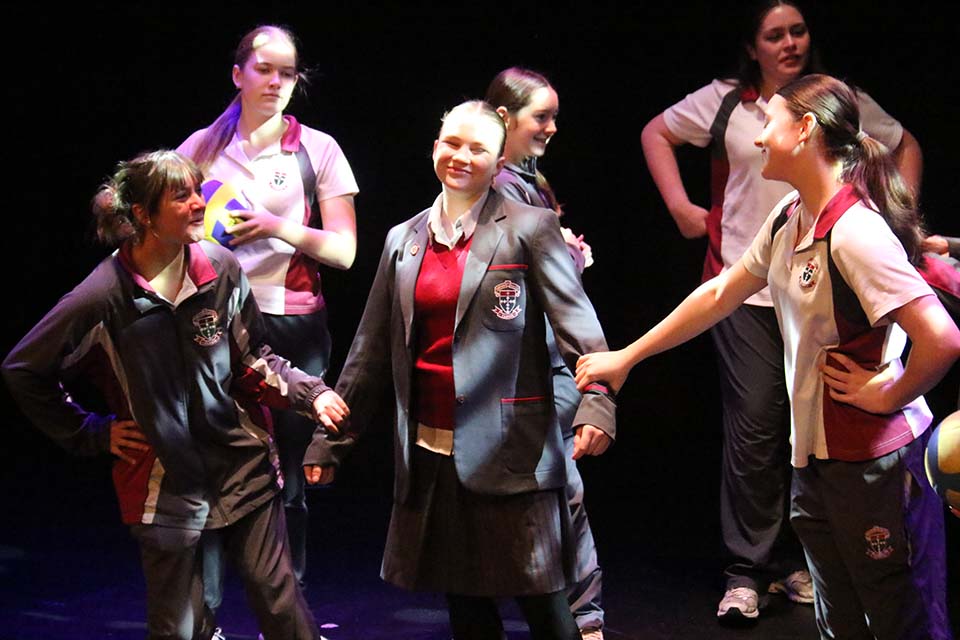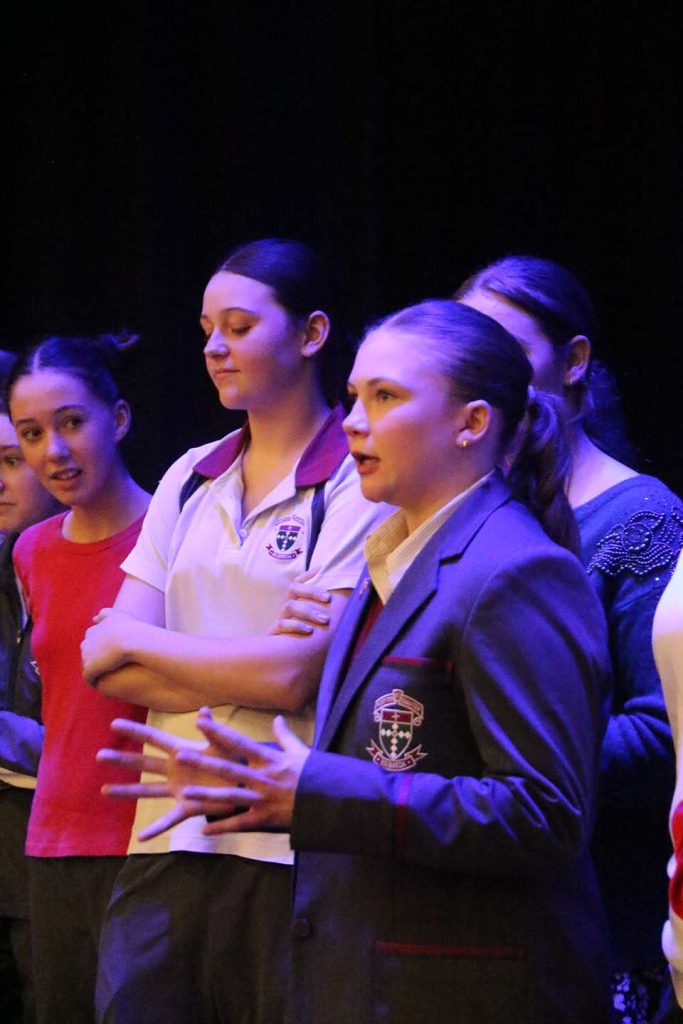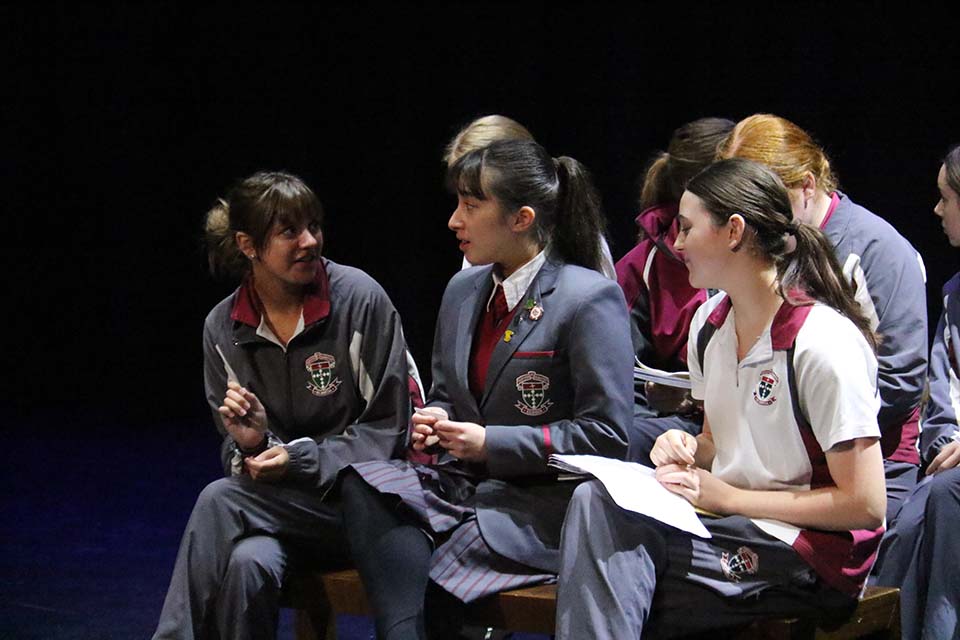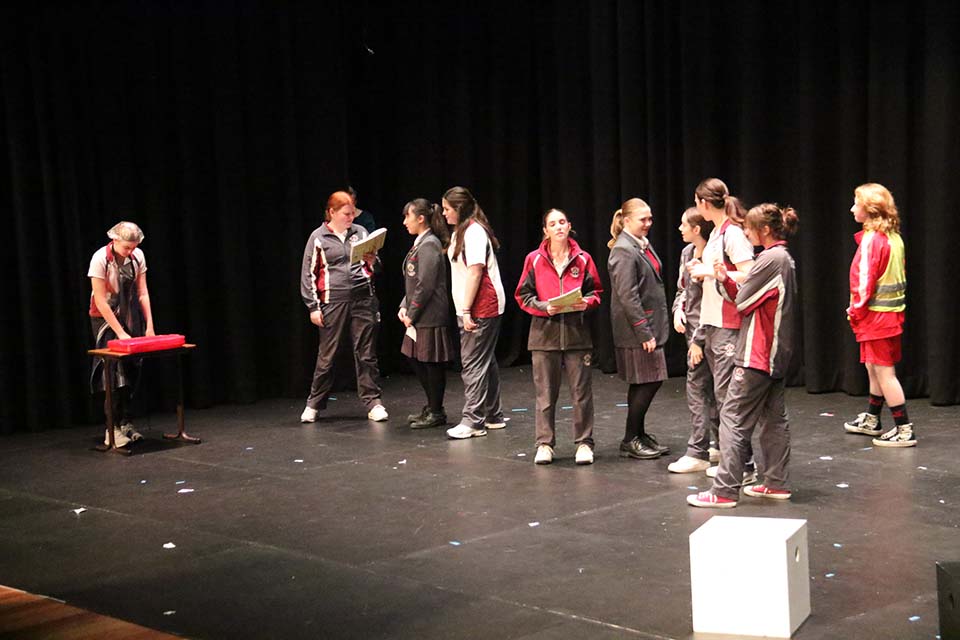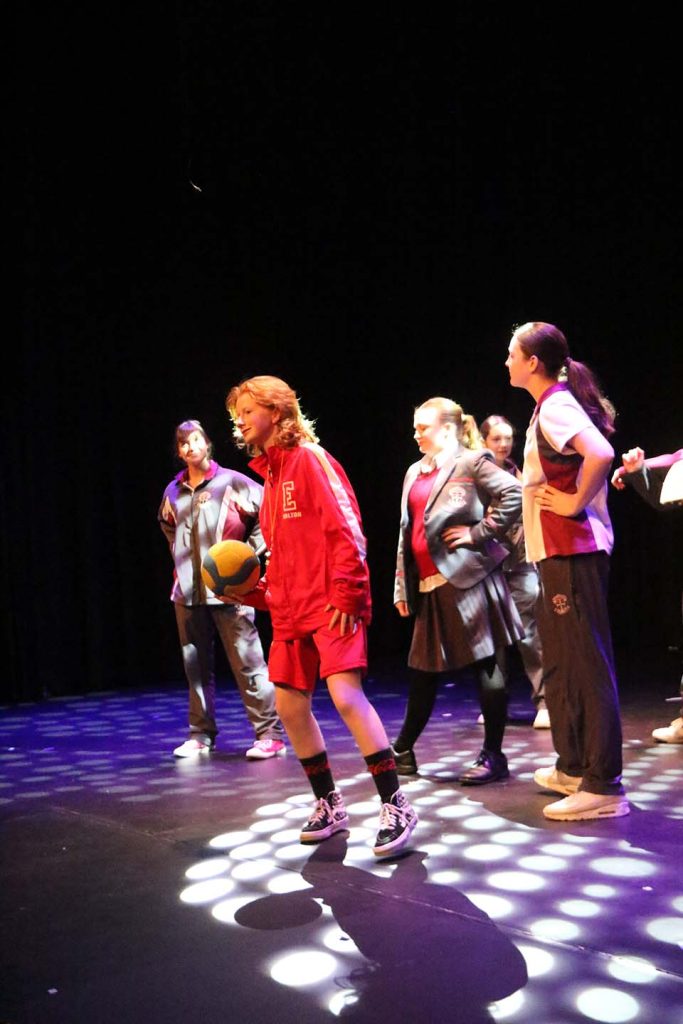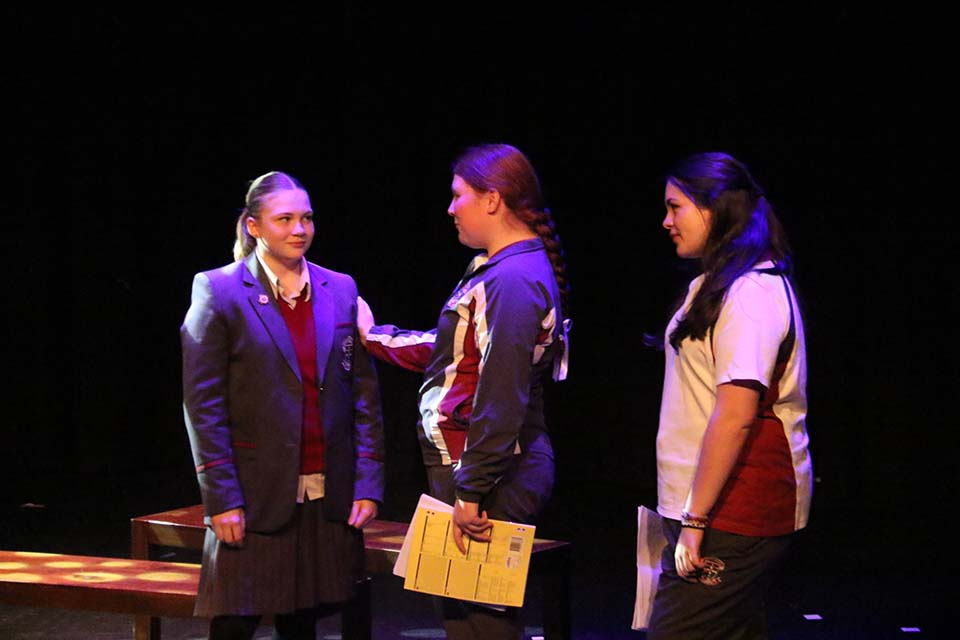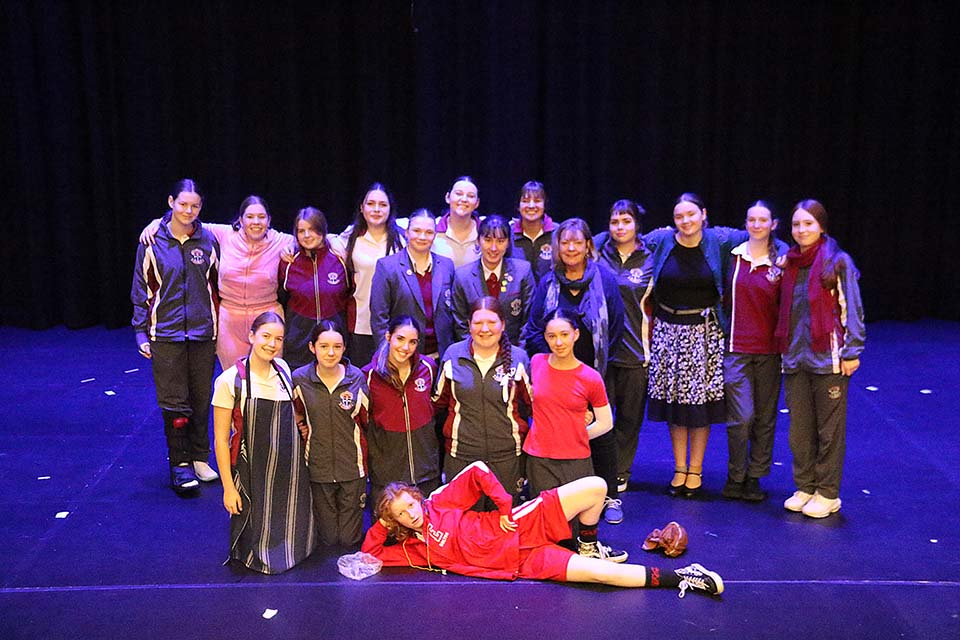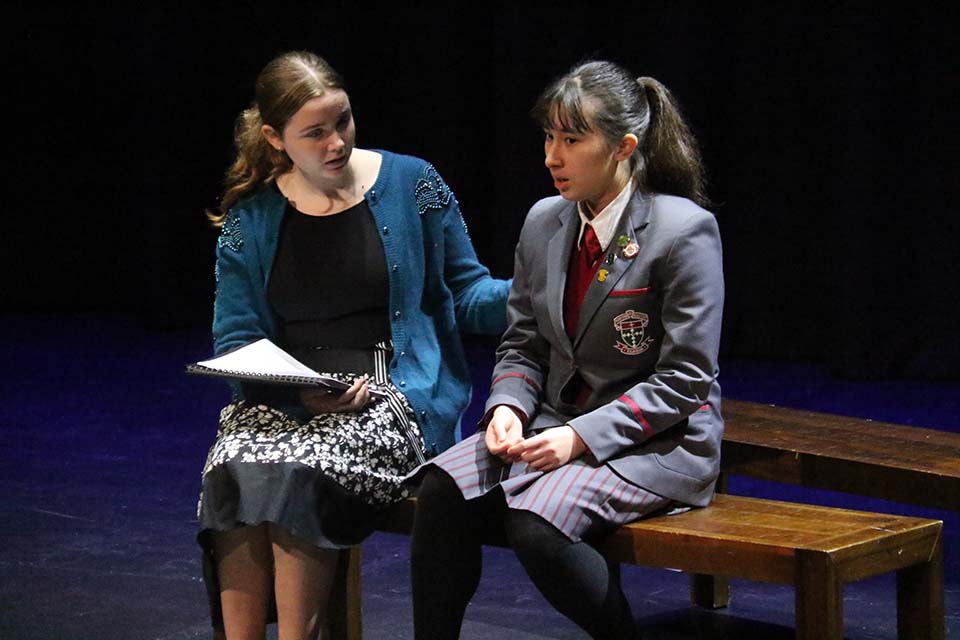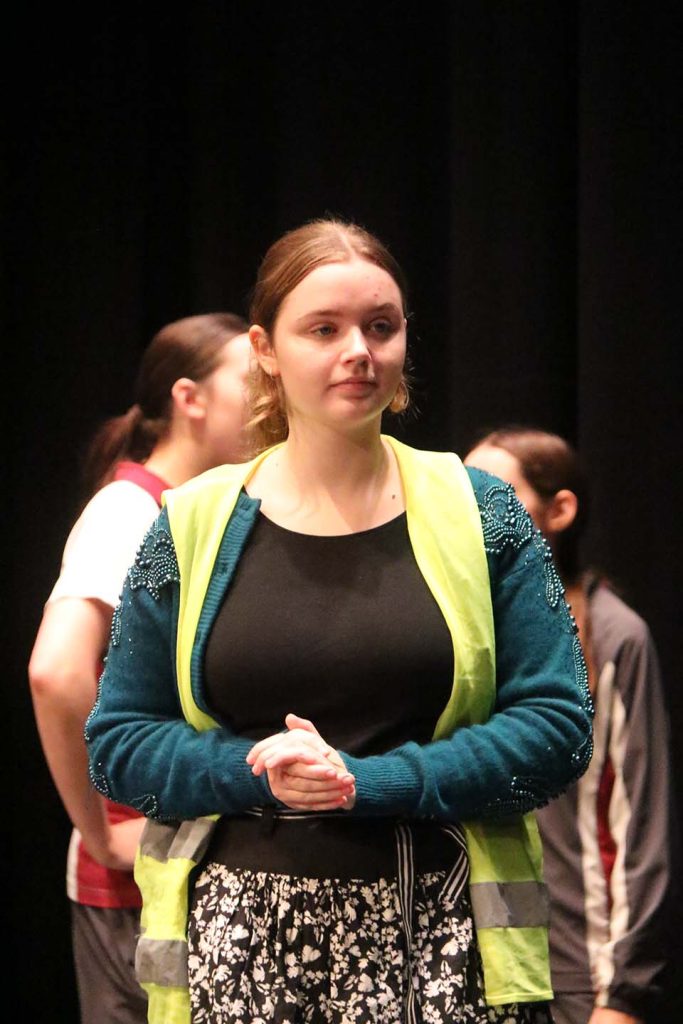Performing Arts
Why study Performing Arts?
The Arts enable students to develop their creative and expressive capacities by learning about different practices, disciplines and traditions. It contributes to the development of confident and creative individuals and enriches Australian society. Students express, represent and communicate ideas in contemporary, traditional and emerging arts forms. It requires academic rigor, problem solving and risk taking.
At Kilbreda we promote inclusion and excellence in the Performing Arts and expose students to a variety of Arts experiences both in and out of the classroom. We aim to create ‘thinking’ performers with skills that are transferable to many areas of study and life.
Semester 2 is an exciting time in the Performing Arts classroom. Some students are beginning new units of study that run for the semester whilst others are continuing their year long subjects. Here is an update of what is happening in Dance and Drama:
Drama:
Year 7 Drama students are being introduced to the expectations of secondary school drama – focus, risk-taking, organisation and unconditional positive regard for others. They will learn about Creation Myths, devising and performing their own using sacred stories as inspiration.
In Year 8 drama we explore Reality TV conventions and generate performances inspired by these, considering the tension and conflict created.
Year 9 Drama will focus on a group devised play and different styles of theatre.
Year 10 Drama is a new and exciting elective that prepares students for the rigour of VCE analysis, writing and performance. Students are investigating European Pioneers of drama and working on play.
Our VCE Drama students are working on their solo performances for end-of-year external assessment. They have participated in a Drama Victoria workshop focusing on exam criteria and will work with actor/director Rohan Browne to further hone their expressive skills.
Dance:
In Year 8 Dance, students are learning the concepts of Safe Dance and are devising their own warm-ups with cardio-vascular movement, isolations and stretching. They will research and write a Safe Dance Brochure for an audience of Year 7s to inform them about Safe Dance spaces, nutrition, hydration and injury prevention.
In Year 9, the students are analysing ‘Terrain’ by Bangarra Dance Theatre, exploring the storytelling role of dance for First Nations people. Students analyse this piece using dance terminology and consider how meaning is created through movement.
The Unit 2 and 4 students study ‘Seize The Day’ from ‘Newsies’, the Musical choreographed by Christopher Gatelli . They will analyse the movement vocabulary and the meaning behind this musical theatre style of movement. This understanding will in turn help the students with their own choreography for meaning.
At the end of the year we will be presenting a Curriculum showcase to present the work that students develop during class time. This will also enable junior students to see the work of older students as a model for their future performance, we are very excited about this new initiative.
Year 9 Drama
In Year 9 Drama this year, we worked on a play called ‘Nice Girl’ as a whole class and performed it to Year 7s in the Auditorium.
The play was about a nice girl called Mia who has an alter ego who acts more assertively than the real Mia. In her fantasy alter ego, Mia stands up for herself, giving Mia her wish to be more outspoken. I played the role of fantasy Mia; this role had a lot of character and personality. I really enjoyed learning how to get out of my comfort zone and play a character who is quite different from me and a challenge to act.
This opportunity taught me how to convey someone else to an audience and gave me the chance to work with my peers in a collaborative and social way. It was a really fun experience, and I am so happy I chose Drama as an elective.
Maisie O’Toole
Last term the Year 9 Drama class learnt about putting on a play performance and worked collaboratively on a play called ‘Nice Girl’. The class was given the opportunity to act on stage or take on roles behind the scenes in lighting, sound design or backstage crew.
This play is about a girl called Mia who wishes to say exactly what ison her mind but realizes that maybe saying every thought in her mind wasn’t a good idea. I was fortunate to play the role of Mia who is hesitant and timid, the opposite of her alter ego, fantasy Mia.
This opportunity helped me improve my confidence and build friendships. I had an amazing time working on this play and congratulate the amazing team that contributed to this performance!
Mia Czegledi
Drama Victoria Solo Workshop Day
After attending the Unit 4 Drama solo workshop day run by Drama Victoria, the Unit 4 Drama class are feeling energised and motivated to delve into the creation process for their solos. The end of year solo performance examination contributes to 50% of the overall result for Drama so, understandably, this is always a daunting task to begin. At the workshop, the students had the opportunity to devise and perform both group and solo work with other Drama students from Mentone Grammar, Elisabeth Murdoch College, Frankston High and OLSH College. Everything they explored was directly related to their selected solo structures, and it was a wonderful opportunity to collaborate, connect and create with other VCE Drama Students. We wish them the very best for this challenge ahead.
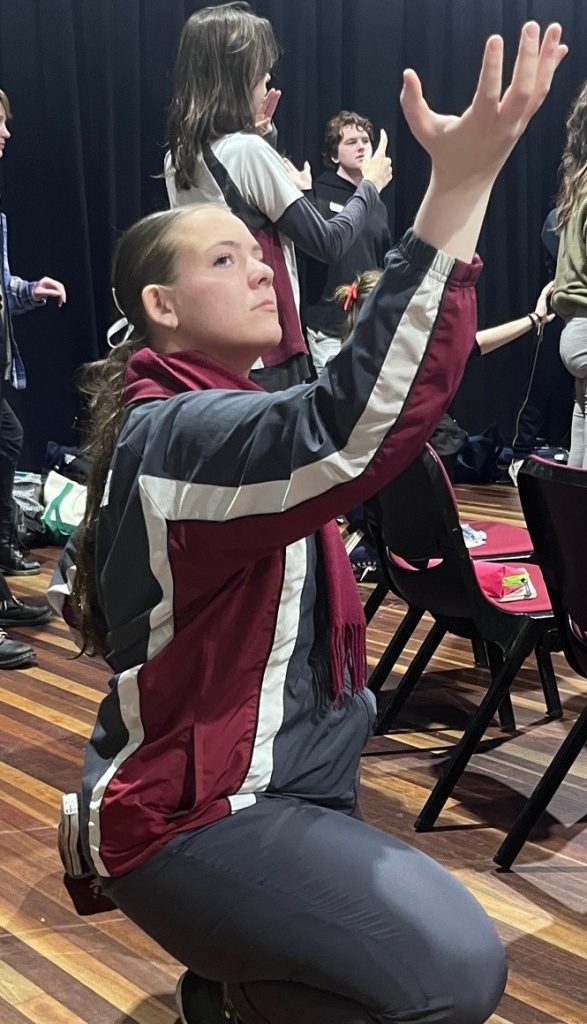
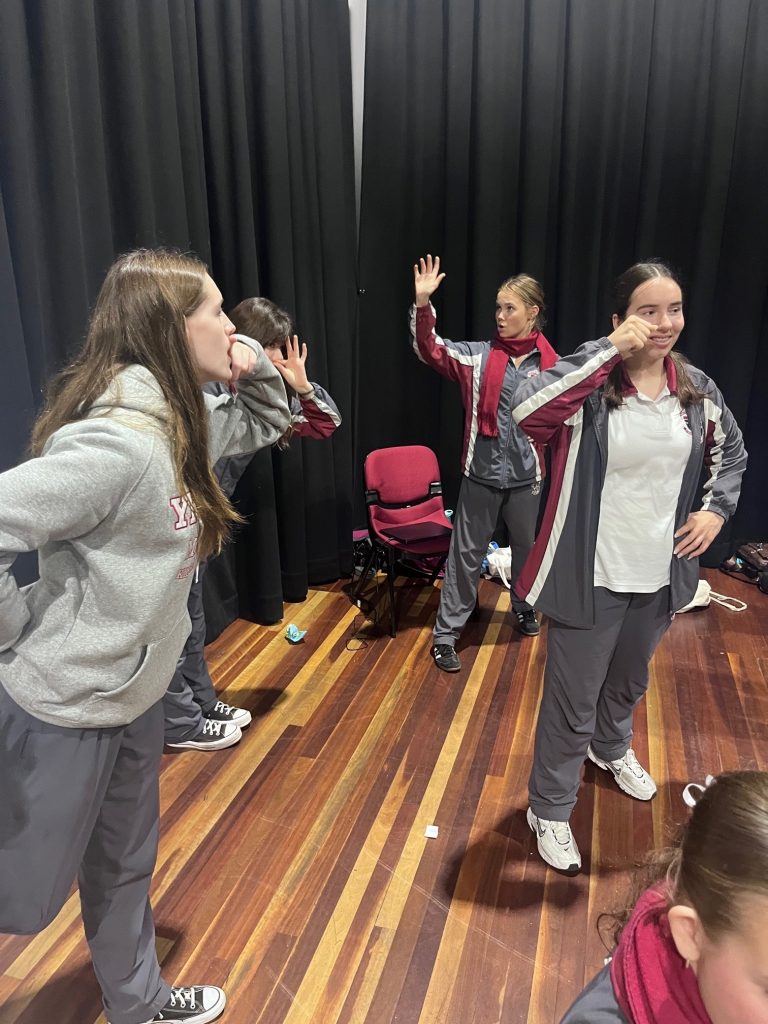
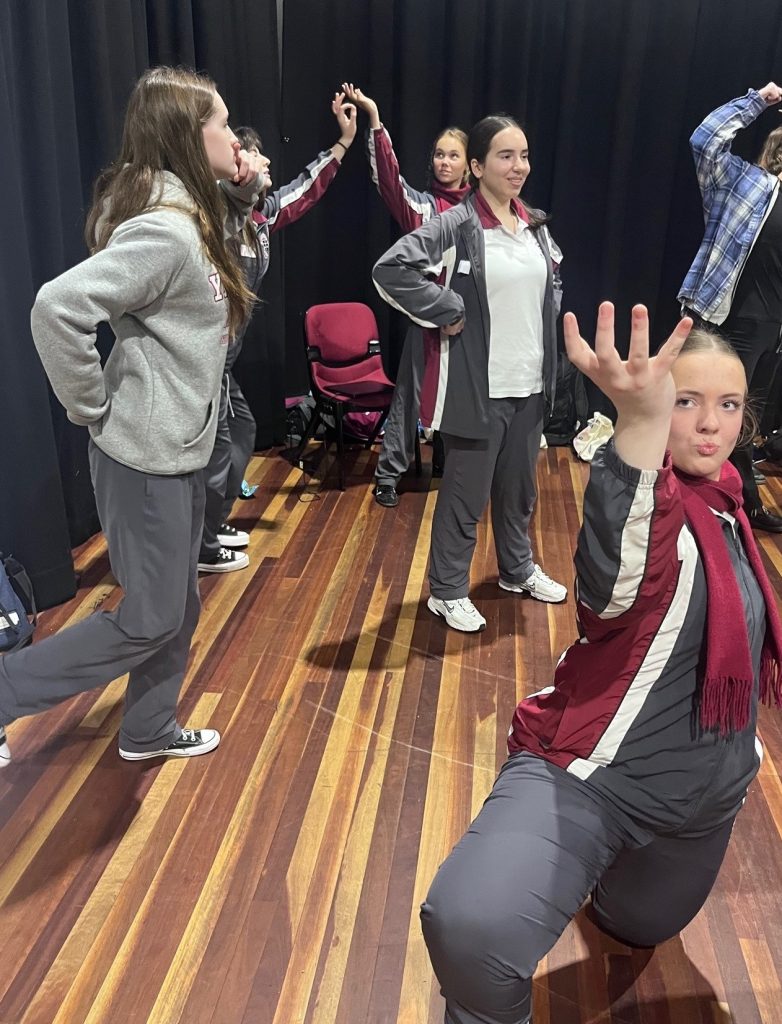
What does a well-rounded Music Education consist of?
It is well documented that learning music has many benefits to individuals, including the development of transferrable skills in literacy and numeracy, social and emotional advancement as well as giving students the opportunity to be creative through sound.
At Kilbreda College our Classroom Programs incorporate a range of skills and experiences to enhance student learning in the area of Music.
Playing
Students learn to play melodies, harmonies, chord progressions and rhythms on a variety of instruments including keyboard, xylophone, hand percussion, guitar or ukulele. They play by ear and/or from traditional or modern notation. Students can then opt to take this further by specialising in one instrument and participating in private lessons from an expert tutor, and/or join our ensembles. Through these performance opportunities, students learn how to cope with nerves and pressure, and are inspired by the joy that their performances bring people in the community!
Singing
All students are encouraged to sing, even if they are “not a singer”! Singing helps the brain to think in sound and requires the use of your internal instrument! Skills in singing are imperative to enhance musicality, even if an instrument is the area of specialisation.
Listening
The ability to identify and record melodies and rhythms, known as aural dictation, is covered in classroom music to develop aural awareness. Student musicians learn the ‘Elements of Music’ and take this further by describing instrumentation (identifying instruments), tone colour, texture, structure, to name a few.
Well-rounded Musicians have a wide knowledge and appreciation for a variety of music styles, including classical, jazz, contemporary, ensemble, popular and world music. A high-quality music education incorporates exposure to all these types and more, and develops skills in active listening, analysis and the ability to describe what is heard using music terminology. Live performances are ideal; however, having a diverse Spotify play list will also assist!
Theory
Many people think that musicians must learn to read traditional notation. This is somewhat correct; however, with advancing technology and changing trends in music, many can get by through using other means such as chord charts, TAB, lead sheets, playing by ear and even graphic notation! A basic understanding of all forms of notation is advantageous, therefore covered in our curriculum, as in the industry, that is what is expected of professionals.
Composition
Just like creative writing requires the application of grammar, spelling and language skills, composition also requires an understanding of melody, harmony, rhythm and structure, to create a work. Composition tasks help students to use their musical skills for creative purposes, which then also often links to use of technology including notation software and Digital Audio Workstations. Collaborative composition can also enhance a student’s interest in their instrument or voice and provide them with a piece that is ‘their own’.
Thank you to our classroom Music team, Ms Keryn Holden and Ms Wanda Elton, for their dedication to providing students with a high-quality music education. By incorporating all of the above aspects in our Year 7-12 Music Curriculum, Kilbreda students are well placed to go out into the world with a solid appreciation of Music, that will inspire them for a lifetime of enjoyment.



